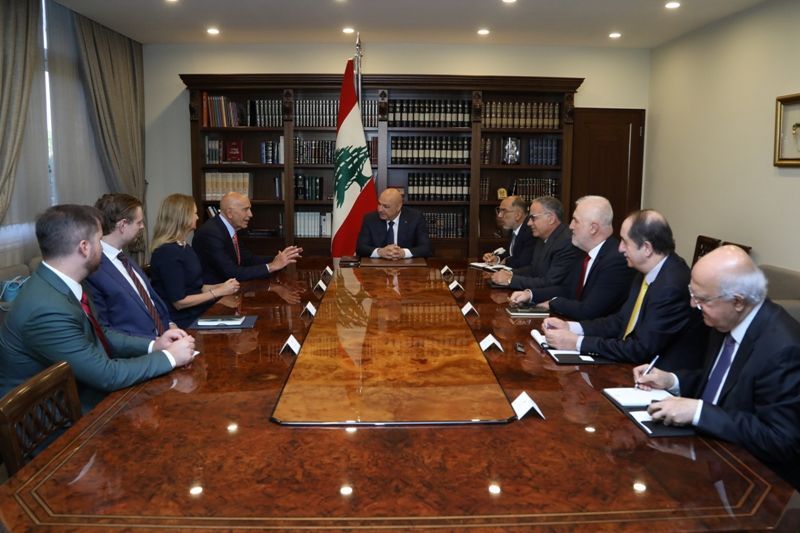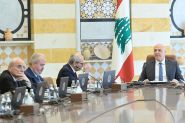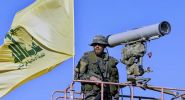
Prime Minister Nawaf Salam affirmed to visiting US Ambassador to Turkey and Special Envoy for Syria Thomas Barrack Lebanon’s commitment to staying out of regional conflicts during their meeting on Thursday.
In the talks, held amid an escalating conflict between Israel and Iran, Salam emphasized the country’s “keenness not to get involved in the ongoing regional war,” reaffirming Lebanon’s position of neutrality.
Barrack, on a one-day visit to Lebanon, held a series of high-level meetings with Lebanese officials Thursday.
After a morning meeting with Parliament Speaker Nabih Berri in Ain el-Tineh, the US diplomat stated, “We came to help Lebanon and prevent the war from escalating.”
He warned against any Hezbollah involvement in the Iran-Israel conflict, calling such a move a “bad decision” if taken. Confident about the prospects of his mission, Barrack expressed his belief that under Lebanon’s new leadership, a process of peace and reform could begin. He added that he still held hope for a way out of the current crisis.
Prior to meeting Berri, Barrack was received at the Presidential Palace in Baabda by President Joseph Aoun. During their discussion, Aoun laid out Lebanon’s strategic priorities, urging the US to support national reconstruction efforts, particularly through stability in the South.
The president emphasized three key conditions for lasting security along the southern border: Israel’s withdrawal from five still-occupied strategic hills, cessation of hostilities, and the renewal of the mandate for the United Nations Interim Force in Lebanon (UNIFIL), which coordinates closely with the Lebanese Army to enforce UN Security Council Resolution 1701.
Aoun reiterated the Lebanese Army’s commitment to upholding 1701, including dismantling armed manifestations, seizing weapons and ammunition, and banning unauthorized armed presence south of the Litani River. However, he noted that continued Israeli occupation obstructs the mission’s full effectiveness.
Domestically, Aoun affirmed that structural reforms are underway and will proceed without hesitation. He reaffirmed his commitment to fighting corruption and reviving public institutions to meet the urgent needs of the population amid a deepening national crisis.
According to sources at the Presidential Palace cited by local channel LBCI, Barrack reportedly urged Lebanon to “accelerate” Hezbollah’s disarmament, though without setting a firm deadline. Lebanese officials responded that progress hinges on three points: Israeli withdrawal from occupied territories, cessation of Israeli violations of Lebanese sovereignty, and the release of detainees.
The talks in Baabda, the sources added, emphasized a principle of reciprocal gestures—any Israeli move should be met with a corresponding Lebanese action.
Barrack also encouraged Lebanese authorities to strengthen coordination with Damascus on border demarcation issues, without tackling sensitive topics such as the disputed Shebaa Farms and the village of Ghajar for the time being.
The U.S. envoy informed Lebanese officials of his intention to visit Lebanon again in the near future.



Comments